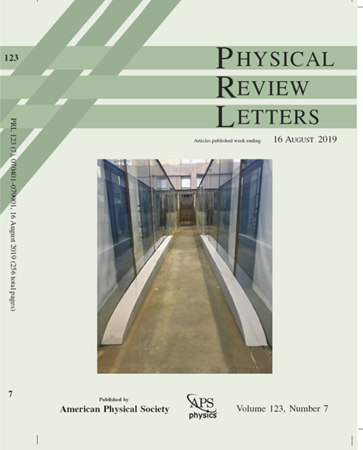New Physics Decaying into Metastable Particles: Impact on Cosmic Neutrinos
IF 8.1
1区 物理与天体物理
Q1 PHYSICS, MULTIDISCIPLINARY
引用次数: 0
Abstract
We investigate decays of hypothetical unstable new physics particles into metastable species such as muons, pions, or kaons in the early Universe, when temperatures are in the MeV range, and study how they affect cosmic neutrinos. We demonstrate that the nontrivial dynamics of metastables in the plasma alters the impact of the new physics particles on the neutrino population, including the effective number of neutrino degrees of freedom, Neff, modifies neutrino spectral distortions, and may induce asymmetries in neutrino and antineutrino energy distributions. These modifications have important implications for observables such as big bang nucleosynthesis and the cosmic microwave background, especially in light of upcoming cosmic microwave background observations aiming to reach percent-level precision on求助全文
约1分钟内获得全文
求助全文
来源期刊

Physical review letters
物理-物理:综合
CiteScore
16.50
自引率
7.00%
发文量
2673
审稿时长
2.2 months
期刊介绍:
Physical review letters(PRL)covers the full range of applied, fundamental, and interdisciplinary physics research topics:
General physics, including statistical and quantum mechanics and quantum information
Gravitation, astrophysics, and cosmology
Elementary particles and fields
Nuclear physics
Atomic, molecular, and optical physics
Nonlinear dynamics, fluid dynamics, and classical optics
Plasma and beam physics
Condensed matter and materials physics
Polymers, soft matter, biological, climate and interdisciplinary physics, including networks
 求助内容:
求助内容: 应助结果提醒方式:
应助结果提醒方式:


